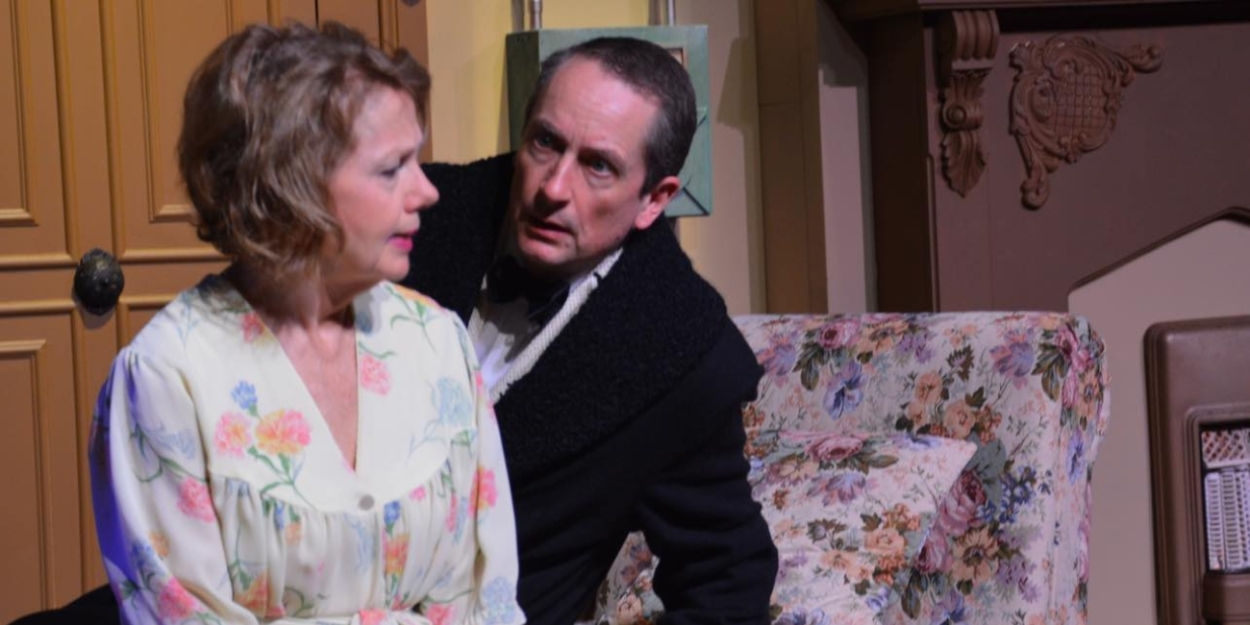Review: THE DEEEP BLUE SEA at Star Theatres
Terence Rattigan,s masterpiece

Reviewed by Ewart Shaw, Sunday 1st December 2024.
I can’t imagine that there are many people in Adelaide, or even Australian, theatre for whom the name Terence Rattigan rings a bell. He was a leading playwright in Britain in the middle of the last century and The Deep Blue Sea is considered his masterpiece. Rob Croser directs the well-crafted production that we expect from Independent Theatre.
The play has lasted well. The situation is as touching, and as involving now as it was over seventy years ago.
Alerted by the smell of gas a young couple and the landlady force their way into a shabby apartment. They find a woman lying by the gas fire. She has made an unsuccessful attempt to commit suicide because she cannot live a lie any longer. They know her as Mrs Page, but her ration book says Hester Collyer. She’s Lady Collyer. It turns out that she left her highly respected husband for another man, younger and exciting. It’s her husband they first contact.
From there, we follow the life, the past, and the present of Hester. We never learn her maiden name. Lyn Wilson catches every aspect of the woman. Her emotional and social confusion have led her to suicide, and the failure of that attempt forces her to reconsider every aspect. She is compelling. Patrick Marlin is outstanding as Freddie Page, the sexually charismatic former test pilot and habitue of all the new drinking clubs around town as postwar London wakes up to a brave new world. You can see how and why Hester left Sir William Collyer, portrayed with dignity and compassion by Chris Bleby. There is guilt in Hester’s heart. She met Freddie at a golf course, Sunningdale’s, and ran away to Canada with him. A professional disaster in Freddie’s career has forced them back to London. She has realised that he no longer loves her and that, for her, is the end.
David Roach is Mr Miller, another resident of the block of flats. His accent is German and, though he was trained as doctor, he now can only find work as a bookie’s runner. He becomes her conscience. He administers both medical support and understanding. Finally, Hester, alone since Freddie’s departure, starts to paint.
As you expect with Independent Theatre the supporting cast are finely drawn. Rose Vallen, well known in local theatre circles, joins Croser’s company for the first time as Mrs Elton, the landlady and cleaner. She is loving and caring, with an understanding of what Hester is going through. Tim Everson is Jackie, Freddie’s mate and drinking companion. Sophie Livingston-Pearce and Ryan Kennealy are the upstairs neighbours.
David Roach has designed an apartment, a little shabby, that sits well on the stage of the Star Theatre.
The emotional trajectories of Hester and Freddie are clear and contemporary but what did the first audience make of the play in 1952? What did they know, what did they realise about the life of Hester and Freddie?
I was born just outside London as that first production was in final rehearsal. My home address was 88 AMQ RAF West Malling. My father was an aircraft engineer. The people around, our neighbours, his workmates, were, in many cases, people with direct experience of the war, which had been over only a few years before. Rationing was still in force, and it’s Hester’s ration book that gives the game away. Freddie was a fighter pilot, who survived the war when so many of his mates did not. Survivor’s guilt can be strong. He is physically attractive, younger and more dynamic than her husband, but a risk taker, unsettled by a world he can’t quite make into a success.
If Hester had put a shilling in the gas meter she would have died. In the fifties, gas was fed into the home through the meter box. You put in the cash, you get the gas. There’s one confronting moment in the play where Freddie gives Hester a shilling before he goes out. That gas meter is placed, not close to the floor or in a cupboard, but right and centre on the sitting room wall. You can’t miss it. At one point Mr Miller mentions the year, 1938, he spent on the Isle of Wight. He was interned as an enemy alien, and lost his licence to practice medicine. That first audience would have recognised the reference immediately. Now he is a bookie’s runner. No internet gambling in 1952. Rob Croser’s program is dense with background information.
Is it an accident that she’s called Hester, like the heroine of The Scarlet Letter. I don’t think so. Rattigan was very well-read. The basic idea for the play reportedly came as Rattigan’s response to the suicide of his lover. Catharsis is one of the great gifts of theatre.
Reader Reviews
Videos

